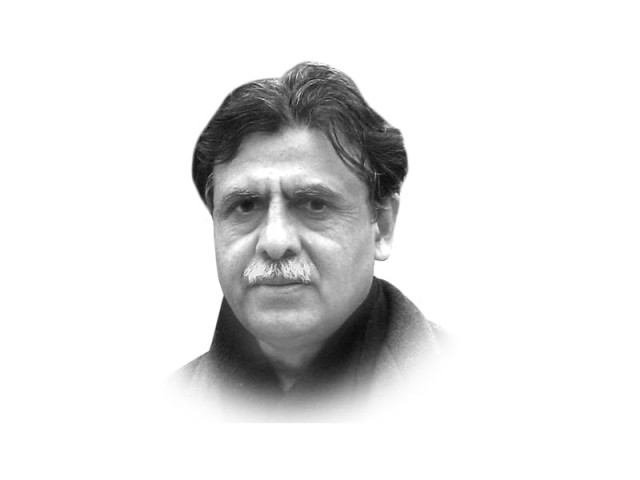The changing face of Lahore
Till 1970s, the city could boast of having a pluralistic mosaic but now majoritarianism is sweeping across Lahore.

The institute was, however, wound up for inexplicable reasons. The government did not feel the necessity to pursue the issue either. Waldemar Kroders, the honorary consul of Germany in Lahore, who had spent a lifetime in the city, had been a great promoter of cultural exchanges. At an informal lunch at his residence, I recall how sad he was at the closure of the Goethe institute. A visit to the place, while seeing the alternative use of the venue, was indeed indicative of the new priorities and developing tastes in the ever-evolving metropolis of Lahore.
The city has witnessed many such cataclysmic changes during the last few decades. Till the 1970s, the city could rightly boast of having a pluralistic mosaic. As of now, the irresistible tide of majoritarianism is sweeping across Lahore. This was not the tradition of this city. There had been a sprinkling of religious and cultural minorities, which added strength to life in this engaging city. One came across Anglo-Indians, Parsis and Jains regularly.
In the 1970s, I lived in Garhi Shahu, where Anglo-Indians were a familiar sight. Most of them lived in the vicinity of the railway carriage factory. Anglo-Indian ladies could be spotted riding their bicycles and shopping in the main bazaar. The presence of Anglo-Indians in Lahore was by no means an accident. Their presence assumed special significance, with Lahore being the headquarter of North Western Railways. This was the new face of colonial Lahore, as it provided connectivity between Delhi and the north-west at one end and subsequently, with Karachi and Quetta at the other end. Anglo-Indians provided 'steam' to the steam engines and manned the most critical operations of the railway network.
Lahore's traffic police with a handsome sergeant piloting the VIP entourage was also a familiar sight. Anglos manned the front desks of offices, worked as stenographers, and played musical instruments in hotels and restaurants. By the mid-1970s, their exit from the city started as they left for greener pastures.
Like the Anglo-Indians, Parsis were also a miniscule, yet distinct part of city life. As chronicled by renowned fiction writer, A Hamid, in the early years, most Parsis lived in an enclave in the vicinity of Laxmi Mansion where Saadat Hasan Manto lived after his arrival from Bombay. They operated most of the liquor business in the city. But with time, most of them faded away. I knew a couple of these families, which lived in the vicinity of old Anarkali and owned small businesses. I also remember a gentleman, with modest means, but who was a good host, serving his guests with Dhan saak and white rice, a traditional Parsi dish of meshed lentils with spicy toppings.
To understand the changing character of Lahore, there is yet another interesting example. Classic Book Depot at Regal on the Mall had been a vantage point and an outlet for liberal and progressive publications. The owner of the place, Agha Amir Hussain, an affable, thoughtful person, had been in the publication business for many decades. His bookshop had been a converging point for the progressive writers of yore. It was here that I had the chance to see renowned cultural columnist, Safdar Mir, who wrote under the pen-name, Zeno. He often visited the shop and would flip through the different magazines and books. Zaheer Kashmiri was another frequent visitor.
Classic was not merely a bookshop, but also a purveyor of liberal ideas. It had to pay a heavy price for this when it was ransacked by the hoodlums of a right wing party. The late ZAB paid a visit to Classic to sympathise with the owner, with the visit morphing into a media event. The place is no more the same. The sign board of Classic is very much there, but the shop itself has been turned into a bakery. What turned a thoughtful person like Husain into a baker may have its own reasons, but it is a sad story for nostalgia-whelmed Lahoris. The owner has, however, done one favour. He has shifted the bookshelves up a steep ladder on the first floor, which very few dare climb!
Published in The Express Tribune, August 26th, 2014.
Like Opinion & Editorial on Facebook, follow @ETOpEd on Twitter to receive all updates on all our daily pieces.













COMMENTS
Comments are moderated and generally will be posted if they are on-topic and not abusive.
For more information, please see our Comments FAQ